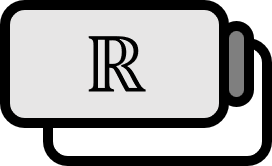Uniform Convergence of Function Series
Definition
Let’s define a subset $E \ne \emptyset$ of $\mathbb{R}$, function $f : E \to \mathbb{R}$, and sequence of functions $\left\{ f_{n} : E \to \mathbb{R} \right\}_{n=1}^{\infty}$. If there exists $N \in \mathbb{N}$ for every $\varepsilon > 0$ satisfying $n \ge N \implies | f_{n} (x) - f(x) | < \varepsilon$, then sequence $f_{n}$ converges uniformly to $f$ in $E$, denoted by:
$$ f_n \rightrightarrows f $$
or
$$ f_{n} \overset{\text{unif}}{\to} f $$
or
$$ f_{n} \to f \quad \text{uniformly} $$
Explanation
Unlike pointwise convergence, which only concerns the convergence of function values, uniform convergence pays attention to whether the sequence of functions $f_{n}$ actually converges to the function $f$. A sequence that converges uniformly has a stronger condition and thus possesses more properties.
To put it another way, uniform convergence is equipped with stronger conditions to ensure the functions retain the “basic” properties that mathematicians assume they “should” have for research. Unlike pointwise convergent function sequences, the properties of $f_{n}$ are preserved in $f$ for uniformly convergent sequences.
Theorem
Suppose sequence $f_{n}$ uniformly converges to $f$ in $E$.
(a) Continuity: If $f_{n}$ is continuous at $x_{0} \in E$, then $f$ is also continuous at $x_{0} \in E$.
(b) Differentiability: If $f_{n}$ is differentiable at $E = (a,b)$ and $f_{n} ' $ converges uniformly in $E$, then $f$ is also differentiable in $E$, and
$$ \lim_{n \to \infty} {{ d } \over { dx }} f_{n} (x) = {{ d } \over { dx }} \left( \lim_{n \to \infty} f_{n} (x) \right) $$
(c) Integrability: If $f_{n}$ is integrable at $E = [a,b]$, then $f$ is also integrable in $E$, and
$$ \lim_{n \to \infty} \int_{a}^{b} f_{n} (x) dx = \int_{a}^{b} \left( \lim_{n \to \infty} f_{n} (x) \right) dx $$
The ability of $\int_{a}^{b}$ and $\displaystyle {{ d } \over { dx }}$ to freely move within $\displaystyle \lim_{n \to \infty}$ is a very desirable property. If someone asks why this is beneficial, it’s akin to finding the answer within the question. In fields other than mathematics, sequences of functions may appear without considering concepts like uniform convergence and still use the properties of uniform sequences as if they were obvious. However, if the operations became impossible without uniform convergence, it would create a nightmarish scenario.
